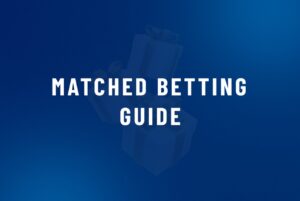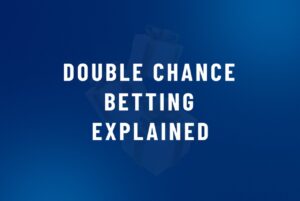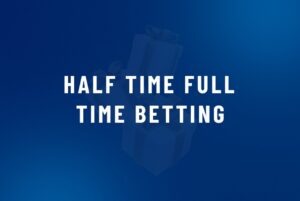High Odds Betting: The Complete UK Guide
High odds betting – the phrase might conjure visions of big wins and thrilling underdog triumphs. But what does it actually mean? And how can punters approach high odds markets sensibly without falling into the trap of chasing longshots?
This in-depth guide breaks it all down. We’ll explain:
- What high odds mean and how they’re calculated
- Why odds drift or shorten
- The psychology behind betting on outsiders
- Strategies for high odds betting
- Practical examples from UK sports like football, horse racing and more
- Common mistakes to avoid
- FAQs
Whether you’re a seasoned punter scanning Oddschecker for big prices, or a casual bettor tempted by a 50/1 flutter, this guide will help you understand how high odds betting really works. You can also check our “Betting Odds Explained” guide if you’re a beginner just discovering the world of betting.
What Are High Odds?
Odds reflect the probability of a particular outcome. The higher the odds, the less likely bookmakers believe that outcome is to happen.
Let’s compare two sets of fractional odds:
- 4/5 (a strong favourite)
- 20/1 (an outsider)
- 4/5 means for every £5 staked, you’d win £4 profit if successful.
- 20/1 means for every £1 staked, you’d win £20 profit if successful.
So, high odds – whether 10/1, 25/1 or even 100/1 – signal a low probability outcome. But they also promise a big return if your bet lands.
Decimal Odds Example
On Oddschecker, odds often appear in decimal format:
- 1.80 → equivalent to 4/5
- 21.00 → equivalent to 20/1
So high odds in decimal terms are generally 10.00 and above.
Why Do Odds Drift or Shorten?
High odds don’t stay static. They fluctuate based on:
- Market money – If lots of people back an outsider, bookmakers shorten its odds to reduce liability.
- Team news – A surprise team selection can lengthen or shorten odds dramatically.
- Weather conditions – For horse racing or football, rain or wind might favour outsiders.
- Statistical trends – Analysts or punters spotting value can influence odds.
Example:
Suppose an outsider horse is priced at 50/1 the night before Cheltenham. On race day, heavy rain turns the going soft. Punters back the outsider, believing it’s a mud-lover. Odds shorten to 20/1.
Oddschecker is brilliant for tracking these shifts across bookmakers. Even small differences can significantly affect potential profits at high odds.
The Allure of High Odds Betting
There’s a powerful psychological pull towards high odds:
- The idea of turning £5 into £250
- The David vs Goliath narrative (e.g. Leicester City winning the 2015/16 Premier League at 5000/1)
- The “lottery ticket” mindset – life-changing wins from tiny stakes
It’s exciting – but that excitement can cloud judgement.
Understanding Implied Probability
High odds betting hinges on probability. Let’s translate odds into percentages.
The formula for fractional odds is:
Implied Probability=DenominatorDenominator+Numerator×100\text{Implied Probability} = \frac{\text{Denominator}}{\text{Denominator} + \text{Numerator}} \times 100
Example: 20/1
11+20×100=4.76%\frac{1}{1 + 20} \times 100 = 4.76\%
So, a 20/1 bet implies the bookmaker thinks there’s only a 4.76% chance of that outcome happening.
Knowing this helps manage expectations. The vast majority of high odds bets lose. That’s why they’re high!
High Odds Betting in UK Sports
Football
- Correct Score Markets: 3-3 might be 50/1
- First Goalscorer: A centre-back scoring first could be 30/1
- Accumulator Bets: Linking multiple results can produce astronomical odds
Example:
- Wolves to beat Man City → 8/1
- Fulham to beat Arsenal → 6/1
- Brentford to draw with Chelsea → 4/1
Accumulator odds: 8 x 6 x 4 = 192/1
One leg loses, the whole acca fails.
Horse Racing
High odds abound in horse racing:
- Outsider horses at 66/1 or bigger
- National Hunt racing often throws up surprise winners
Example:
In the 2009 Grand National, 100/1 outsider Mon Mome stormed home first. A £5 bet returned £500 profit.
But for every Mon Mome, dozens of 100/1 shots trail in last.
Tennis, Cricket and Other Sports
- Cricket: Top batsman markets sometimes offer 20/1 or more on lower-order hitters.
- Tennis: Winning a set 6-0 vs a top seed might be priced at 50/1 or higher.
High odds exist everywhere, but context matters. Not all outsiders have genuine chances.
Strategies for High Odds Betting
Betting high odds randomly is a fast track to losing your bankroll. Consider these tactics:
1. Research-Based Outsiders
Look for:
- Hidden trends (e.g. certain horses excelling on soft ground)
- Team news (e.g. injuries creating opportunities)
- Tactical shifts (e.g. defensive sides changing formation)
Example:
In football, a team safe from relegation might field fringe players, increasing upset potential.
2. Each-Way Bets
Rather than backing a horse outright to win at 40/1, consider an each-way bet:
- Half stake on a win
- Half stake on a place (e.g. top 3 finish)
Even if your outsider places third, you collect some profit.
3. Dutching
Dutching involves spreading your stake over multiple high odds selections so you profit if any of them win.
Example:
- Horse A – 33/1
- Horse B – 25/1
Staking proportionately covers both while preserving a potential return.
4. Value Betting
If you believe the true probability is higher than the odds imply, there’s value.
Suppose:
- A horse is 33/1 (implying a 2.94% chance)
- Your research suggests a 5% chance
Over time, betting value leads to profit despite low strike rates.
5. Keeping Stakes Sensible
Never let high odds tempt you into staking more than you can afford. High odds mean:
- Big payouts… but
- Big likelihood of losing your stake
Treat high odds bets as fun, speculative punts, not a primary strategy.
Common Mistakes in High Odds Betting
- Chasing losses: Trying to “win it all back” on a 50/1 outsider.
- Ignoring research: Backing longshots purely for the price.
- Betting beyond means: High odds tempt bigger stakes because of potential returns.
- Neglecting bankroll management: Even small bets accumulate losses fast if you back outsiders often.
- Misunderstanding “value”: High odds don’t equal value if the true chance is even lower.
Practical Examples
Let’s run through a real-world UK example.
Case Study: Premier League Correct Score
- West Ham v Liverpool
- Bookies price 3-2 West Ham at 45/1
- Implied probability: ~2.17%
A fan feels Liverpool’s defence has been shaky and West Ham’s attack looks lively. They stake £5:
- Potential return: £5 × 45 = £225 profit
West Ham win 3-2. Fantastic return. But nine times out of ten, such specific scores don’t happen. Learn more about Correct Score Betting.
Final Thoughts
High odds betting can deliver thrilling wins – but it’s a minefield for unwary punters. It’s crucial to:
- Understand true probabilities
- Research selections thoroughly
- Keep stakes sensible
- See high odds betting as entertainment, not income
Ultimately, high odds markets exist because they rarely land. Enjoy the ride, but know the risks.
Where to go next on our site
- Our Betting Glossary and betting terms explained for the UK
- Best betting sites in the UK – tested and verified reviews of the best bookmakers in the UK,
- Best free bets offers – clear analysis of self-tested welcome offers for new customers,
- Football betting guides – bookmakers reviews on football and soccer betting.
Safer‑gambling resources
- GAMSTOP self‑exclusion – register free to block online gambling accounts. (Gambling Commission)
- National Gambling Helpline (GamCare) – 0808 8020 133, 24/7. (GamCare)
- NHS: Help for problems with gambling – official support and clinic info. (nhs.uk)
- GambleAware – advice, tools and signposting to treatment. (GambleAware)
Compliance note on scope: This guide focuses on Great Britain under the Gambling Act 2005, regulated by the UK Gambling Commission. If you’re in Northern Ireland, check local arrangements before you bet.
This guide was created with AI assistance and reviewed by a human editor to ensure accuracy and clarity. It is intended for informational purposes only and does not encourage gambling.
FAQs About High Odds Betting
Is high odds betting worth it?
Sometimes, but it’s mostly speculative. Long-term profit requires identifying true value, not just backing outsiders for fun.
Why do odds differ between bookies?
Bookmakers set odds based on different models, liabilities, and customer betting patterns. Oddschecker helps spot best prices.
Do professional punters bet high odds?
Some pros target value in big prices, but most focus on smaller odds with higher hit rates.
Are high odds bets better as singles or multiples?
Multiples multiply risk. Singles are safer, but the appeal of huge returns draws punters to accas.
Can I make a living from betting high odds?
Highly unlikely. High odds betting has low strike rates and significant variance.







